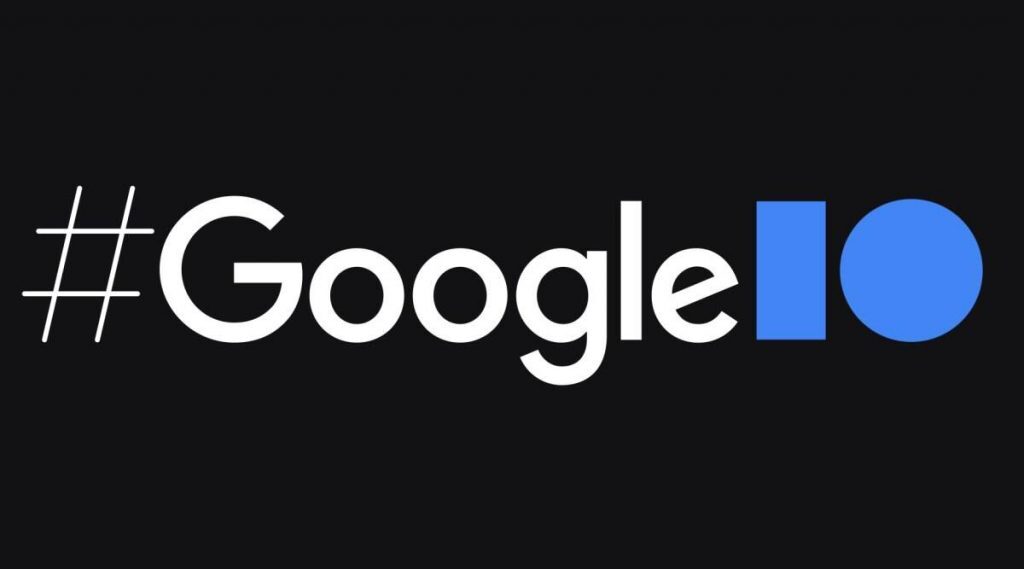Another year, another Google I/O event, and this one was a doozy. The company revealed a mad slew of announcements in the realms of software updates, new features, and even some cool AI developments.
Google also took a moment to brag about how their are now 3 billion active Android devices all over the world, and we’re obliged to congratulate it for that. That’s no small feat. Anyway, here are the biggest announcements from I/O 2021.
Google Photos
Photos got a pair of pretty cool updates. The first is a “cinematic moments” feature that takes to images and turns them into a short moving image. Obviously that doesn’t mean to images with no relation to each other. As you can see in the video, it’ll presumably work with two pictures of the same thing taken moments apart, filling in the gaps between them to create a little live photo.
The second is slightly more practical: locked folders. This feature lets you put your more sensitive or private images into a locked folder. You’ll be able to set it up with a password or a fingerprint scanner. It’s something a lot of people are sure to appreciate. After all, everyone’s had one of those moment’s where they’ve handed their phone over to a mate, gallery open, and prayed that they wouldn’t scroll one or two images too far.
The feature is being rolled out to Pixel phones first, with other Android devices being included in the mix later this year.
A more inclusive camera
It’s relatively well known that standard image processing tends to work better for lighter skin than darker skin. Google’s trying to change that, and is working on its camera and other image products to work better with darker skin.
The company is making changes specifically to its cameras’ exposure and auto-white balance algorithms to improve accuracy and prevent overcorrections (in the form of lighting and saturation) with pictures of people darker skin tones.
These changes will first effect Google’s own products, and the company plans to share its developments with other Android devices later on.
Android 12 gets a facelift
Save a few minor tweaks (some edges smoothed here and there, some colour adjustments), Android OS’ look hasn’t changed a whole lot in recent years. Android 12 is getting a brand new look. And its… bubbly.
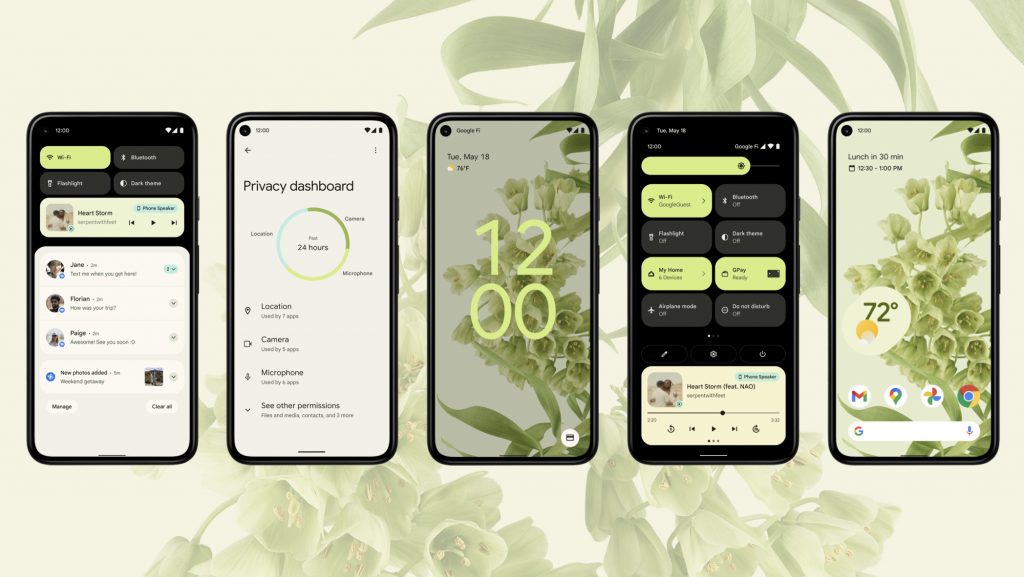
As you can see its pretty snazzy. Google says the new design is based on a “Material You” framework. It offers a nice handful of customisation options, colours, personalisation features, and more.
Apparently the OS will automatically adapt your system colours (that’s your widgets and buttons and so on) to match your wallpaper, because symmetry is stylish. Android 12 is also bringing in a handful of new privacy features, like a new Privacy Dashboard that shows you all of your permission settings, what data of yours is being what apps, and more.
Android 12 will let you know with an icon when apps are accessing your mic or camera, as well as a Quick Settings feature that lets you quickly and easily revoke that access. You’ll also be able to limit the accuracy of location tracking apps, giving them an approximation rather than a perfect target for where you are.
A new health tool to identify skin conditions
This one’s really interesting, though its efficacy remains to be seen. Google revealed that it’s working on a tool that will let you take a photo of a skin area, like a rash or a mole, you may be concerned with, and then receive advice as to whether its something to be concerned with or not. A pilot is set to launch later on this year.
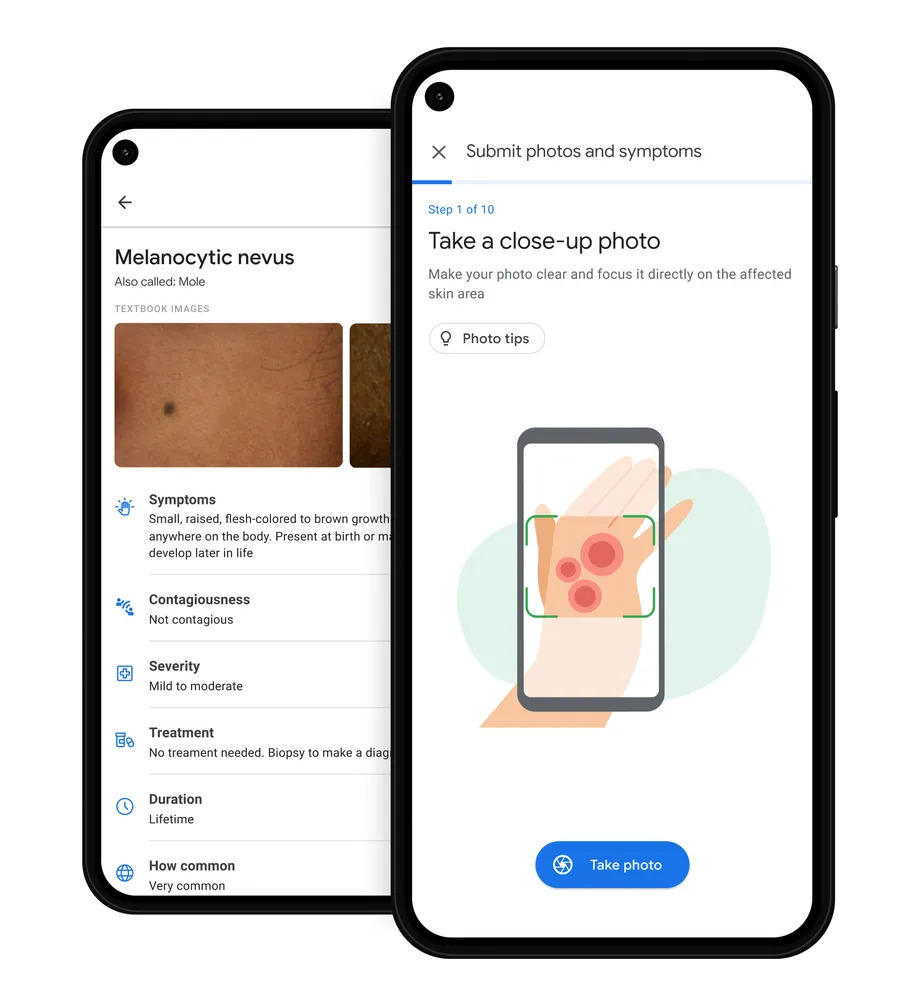
New AI
Google’s been tweaking and refining its AI formula from day one, and was excited to announce a new experimental AI model called LaMDA. CEO Sundar Pichai claims that LaMDA will be used to make conversations with AI assistants fell more natural, and will help them flow better. To prove this, he played two demo videos where LaMDA roleplayed as Pluto (the planet, not the Disney dog) and a paper plane in conversations with Google staff.
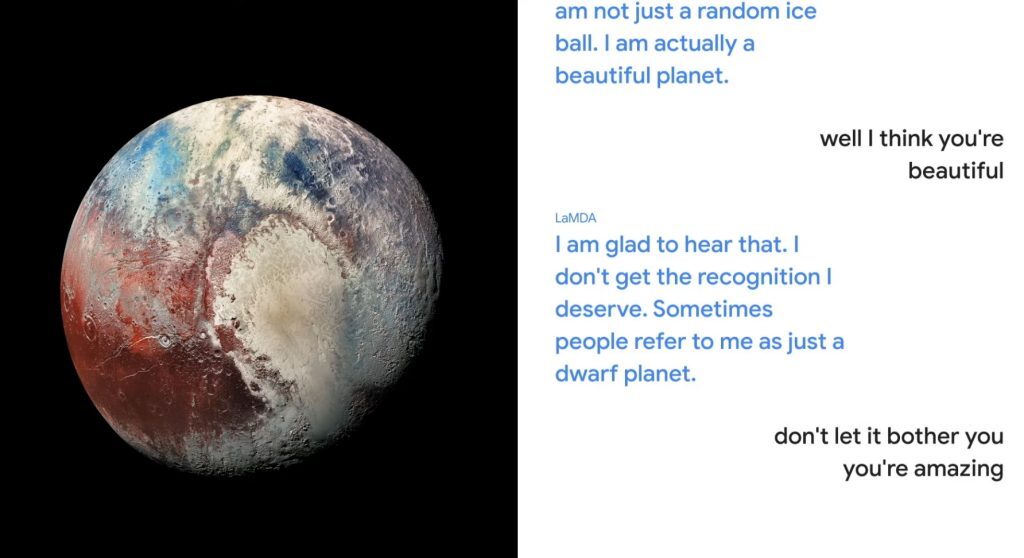
While it’s certainly an impressive display, the conversations were pre-recorded, so we’re not sure just how honest they were as a depiction of LaMDA’s conversational prowess. Still, we’re choosing to be optimistic, and are looking forward to what LaMDA can achieve for Google in the future.
Project Starline
Okay, it’s 2021, we’re all sick of video conferences, but Project Starline might be enough to get us back onboard. It’s effectively an incredibly advanced video call. Project Starline uses a bunch of cameras to construct a 3D image of the involved callers, who sit in what looks like a sort of high-tech booth with a screen at the front of it. This image is then beamed to the person on the other end of the call, utilizing a 65″ “light field display’ to make it appear as if the other person is right in front of you.
The result is what appears to be a face-to-face conversation but is, in fact, not. Right Project Starline is only in a few of Google’s offices, but Google plans to take the tech into the media and healthcare industries later on.
Digital car keys
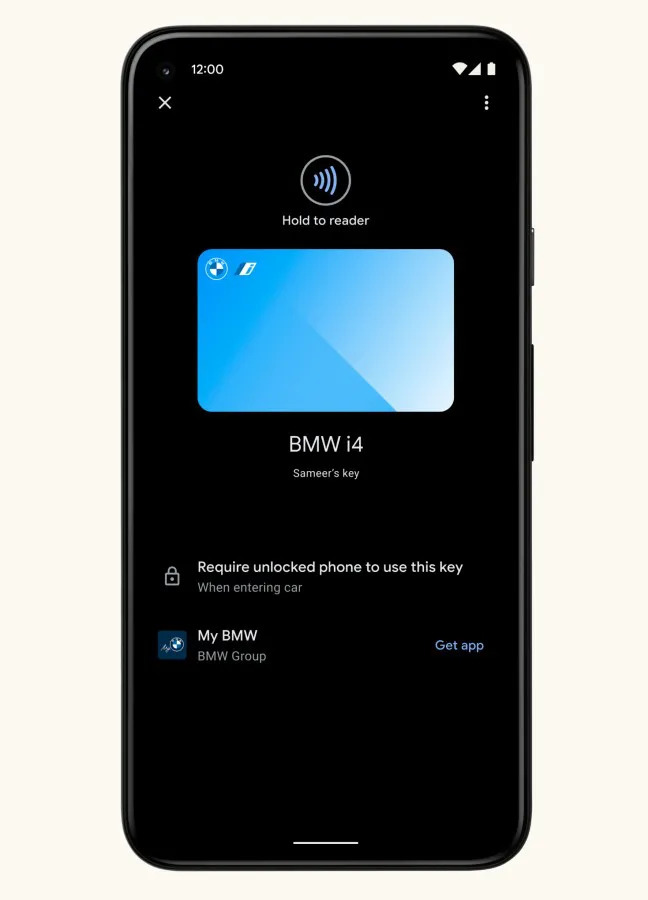
Google announced that Pixel phones and select Samsung devices will soon be able to function as digital car keys (similar to the Ford Pass app). Full disclosure, it’s very limited at the moment, with BMW being the only automaker that Google confirmed as compatible with the tech. But that’s not Google’s fault. Very few automakers have the tech in their own vehicles so far. More surely will be added to the list down the line.
There you have it. That’s not everything of course, Google I/O is notorious for having an absolute truckload of things in it, but these are the ones that we found most interesting. For a full look at this year’s I/O keynote, you check it out here.
Source: The Verge

